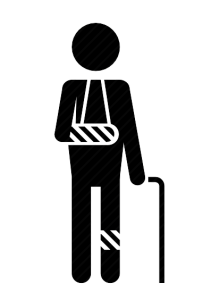 Workers’ compensation is accidental injury and illness insurance provided by most employers for most workers. Each state administers its own workers’ compensation system. The first one was established in New Jersey in 1911.
Workers’ compensation is accidental injury and illness insurance provided by most employers for most workers. Each state administers its own workers’ compensation system. The first one was established in New Jersey in 1911.
Workers’ compensation programs provide benefits to employees who have been injured in an accident on the job or become ill because of their employment. Benefits may include payment for the cost of medical treatments, money to replace a portion of lost wages and payments for temporary or permanent disability.
After a fatal workplace accident, a deceased worker’s survivors may obtain a death benefit through the workers’ compensation program.
Workers’ comp is no-fault-insurance, which means benefits are available regardless of who was to blame. In fact, employees may recover benefits even if they did something careless that resulted in injury. In exchange for workers’ comp benefits, employees give up their right to sue for additional compensation based on their employer’s wrongdoing.
There are two key issues with workers’ comp that may cause problems for injured workers who need benefits. First, it is a government-run program, which mean sit has complex rules and regulations. Second, it is funded by private, usually for-profit insurance companies that often challenge workers’ comp claims to avoid paying benefits.
